World Cup and Winter Olympic will lift Russia to new heights
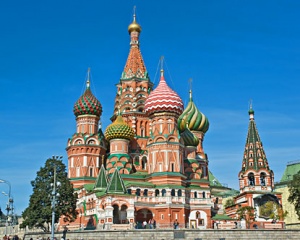
Russia is already enjoying the World Cup and Winter Olympics effect as its tourism levels return to the highs of 2008.
The nation is spending billions in the build up to the 2014 Winter Olympics and 2018 World Cup to bring its infrastructure up to FIFA and ICO standards. However the legacy and possible gains are unlimited.
Whilst Fifa president Sepp Blatter might be hitting the headlines for the wrong reasons this week, in the long term he will be remembered for taking the World Cup to untapped markets.
Russia is lucky in that South Africa’s World Cup was such a success – the assumption made by Fifa Executive Committee in choosing Russia is that it too is also capable of hosting a World Cup.
And going to Russia provides an exciting challenge. Unlike the mature markets of the losing bidders (England, Spain/Portugal and Holland/Belgium), Russia is an emerging football economy. And Fifa likes to fill such footballing “white spots”.
Hosting the 2018 World Cup in Russia marks not only a new football territory – and the first former Eastern bloc country to host the tournament – but also an untapped tourism destination.
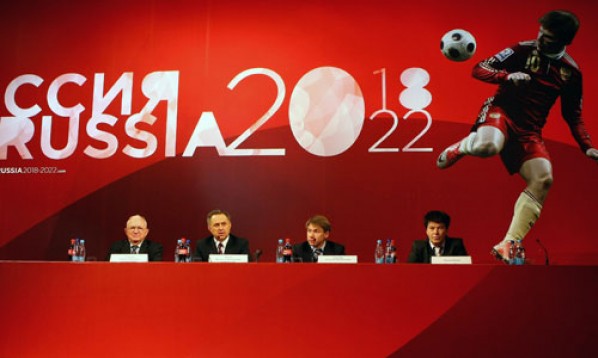
The FIFA World Cup will arrive in Russia in 2018
For years, the need to obtain a visa, lack of affordable and quality hotels, and poor transport infrastructure has hindered Russia’s inbound tourism market.
However with the 2018 World Cup now in the bag, Russia has a once-in-a-generation opportunity and benchmark to create a lasting legacy from the World Cup.
For starters, the president Dmitry Medvedev has promised to scrap visas for holders of World Cup tickets, which could also pave the way for smoothing entry restrictions for international visitors in the future.
Russia’s tourism ministry said it would promote Intourist, the country’s biggest tour operator acquired by Thomas Cook shortly after the World Cup bid victory, as exclusive manager of the event.
As part of its bid strategy, the Russian government also promised that football fans would be able to travel for free between host cities – the distance between the western most host (Kaliningrad) and the most eastern (Yekaterinburg) is 2,500 kilometres.
This makes it essential that Russia’s dilapidated transport infrastructure, which remains largely unchanged from the Soviet era, is upgraded.
Hotels too need upgrading and building. Many existing properties are outdated and overpriced. So as well as renovating, new hotels must be built to address the bed shortage.
Removing language barriers with city.mobi
The language barrier – and different alphabet – will prove a challenge for fans so English-based mobile guides such as city.mobi will be essential.
During the South Africa World Cup, city.mobi provided detailed information about accommodation, attractions, dining, city guides, and transport information tailored for users on the go, and includes host cities, including Durban (durban.city.mobi ), Port Elizabeth (portelizabeth.city.mobi ), Bloemfontein (bloemfontein.mobi, Johannesburg (joburg.city.mobi ), Pretoria (pretoria.mobi ), Nelspruit (http://nelspruit.city.mobi ),
Polokwane (polokwane.city.mobi ), and Rustenburg (rustenburg.city.mobi).
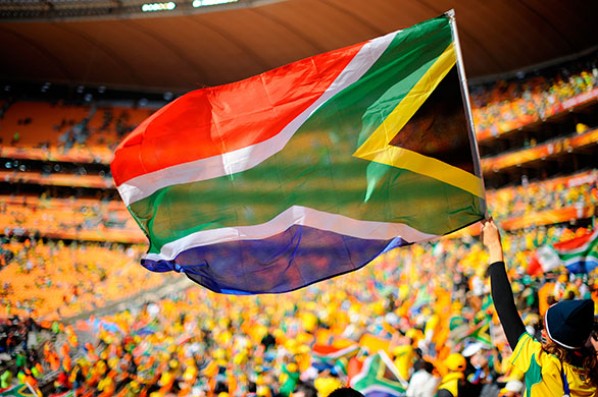
(South Africa’s success at 2010 Fifa World Cup serves as a blueprint for Russia)
At Fifa 2018, city.mobi will be providing similar services for key host cities Moscow (moscow.mobi), St Peterburg (stpetersburg.mobi ) and Novgorad (novgorad.mobi ).
Infrastructure
The World Cup will be played in 16 stadiums in 13 cities – all these will need to be either renovated or built from new. This will cost $3.8bn (£2.4bn), according to an official forecast.
Some estimates suggest that at least twice that amount could be needed to upgrade most airports, to develop high-speed rail services and to build roads and hotels.
Olympic experience
Russia’s progress in preparations for the 2014 Winter Olympics in Sochi will not have gone unnoticed by the Fifa Exco.
Since it was awarded the games in 2007, Russia has made impressive infrastructure improvements as it takes on what has been dubbed “the most expensive and challenging project in its history”.
Telman Ismailov, chairman of Russia’s biggest property developer AST, is building almost 10 percent of the hotel space needed for the Olympics in Sochi.
Plans include Russia’s largest hotel complex. The project will cost Ismailov’s AST Group more than $1 billion. The 24.6 hectare Sodruzhestvo complex will have 5,500 rooms. The group will also build a 150-room hotel in the Imeretinskaya valley near Sochi on a 0.98 hectare site.
Ismailov is also the owner of Turkey’s Mardan Palace, voted “World’s Leading Luxury Hotel” at the 2010 World Travel Awards, Europe’s most expensive resort, costing $1.65 billion to build.
Other Russian oligarchs have been tapped by the government to fund the Olympics, and Vladimir Putin has said they should also help foot the bill for the World Cup.
Roman Abramovich, the billionaire metals tycoon and owner of Chelsea football club, said he was ready to become a partner to the authorities in preparing for the World Cup.
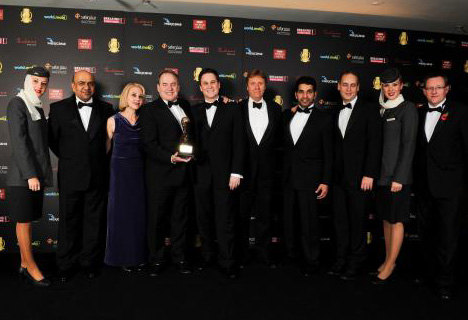
(Etihad - the “World’s Leading Airline” - flies to Moscow)
To implement all the projects, the government will also need to invest vast amounts of its money and effort. As with the 2014 Winter Olympics, full state guarantees will be given to the World Cup project.
Like South Africa, Russia’s eventual financial success – or failure – in organising and hosting the tournament might be evident only years after it is over.
Russia’s grand plan
In a recent speech prime minister Vladimir Putin tacitly acknowledged Russia had fallen behind international rivals when it came to tourism; outlining plans to improve the offering.
Airports were first on the agenda, with Putin outlining a plan to merge, renovate and privatise two major airports in Moscow.
Under the proposals the Russian state will pay up to $1.7 billion for the 25 percent of Vnukovo Airport it does not already own, eventually merging it with Sheremetyevo Airport.
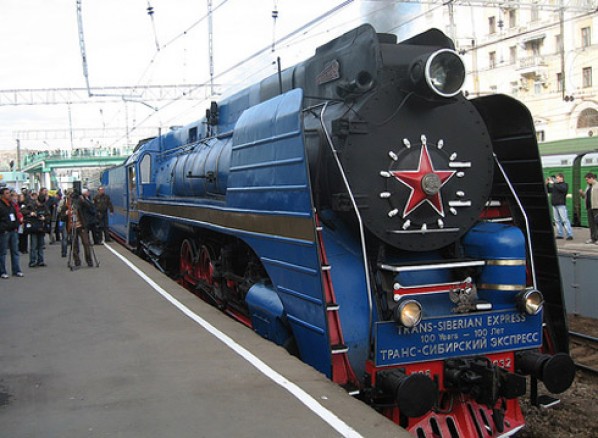
The famous Trans-Siberian Railway is among the top attraction in Russia
It is hoped the new entity will challenge privately-owned Domodedovo Airport, creating competition in the sector, boosting the experience offered to international guests.
This would be a start, with international travellers greeted on arrival by facilities becoming of a potential global superpower.
Holidays in Russia
Over 15 million visitors already arrive each year, according to the United Nations World Tourism Organisation, placing the country fifteenth in the world. However, this is well behind France, which attracts over 60 million visitors annually and leads the world in terms of international arrivals.
Many are drawn to Russia by the chance to travel the Golden Ring of ancient cities – including Uglich, Yaroslavl, Kostroma and Suzdal – as well cruises on the Volga or take a trip on the famous Trans-Siberian Railway.
Some 23 UNESCO World Heritage sites are also on offer.
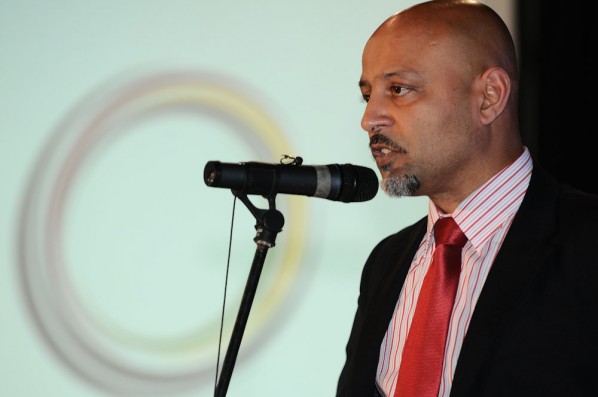
(Tony Prince of WSDE Sport Tourism Expo)
Russia is also well connected to the outside world. A host of carriers – including Etihad Airways, voted “World’s Leading Airline” by World Travel Awards – fly into Moscow, while St Petersburg and a number of regional centres are also on offer.
Attractions, including the Kremlin, can also compete with those on offer anywhere in the world.
Sport Tourism – a booming industry
Sport Tourism is travel industry’s fastest growing sector, and contributed an astonishing 14 percent of overall travel and tourism receipts in 2010, according to WSDE Sport Tourism Expo, the only global exhibition and business forum dedicated to showcasing the full spectrum of Sport Tourism related products and services.
At a time when some traditional tourism trends are in decline, Sport Tourism continues to flourish and is set to grow exponentially in the next decade.
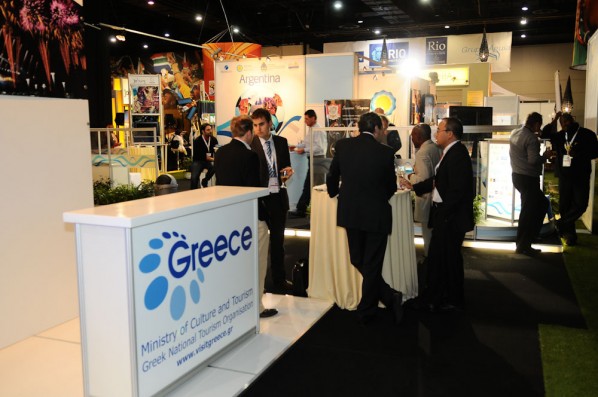
(WSDE Sport Tourism Expo - the ultimate forum for everything sport tourism)
Yet the complex mechanics of Sport Tourism have not yet been fully understood or realised. The annual WSDE Sport Tourism Expo aims to present the future business deals and source new contacts and markets, but also to gain invaluable insights from the advanced knowledge of market leaders.
Now in its second year, WDSE Sport Tourism Expo will take place in Bangkok, Thailand - Asia’s Sport Tourism Gateway - from 27-29 September 2011. FInd out about Bangkok at www.bangkok.mobi
To find out more visit www.sporttourismexpo.com

